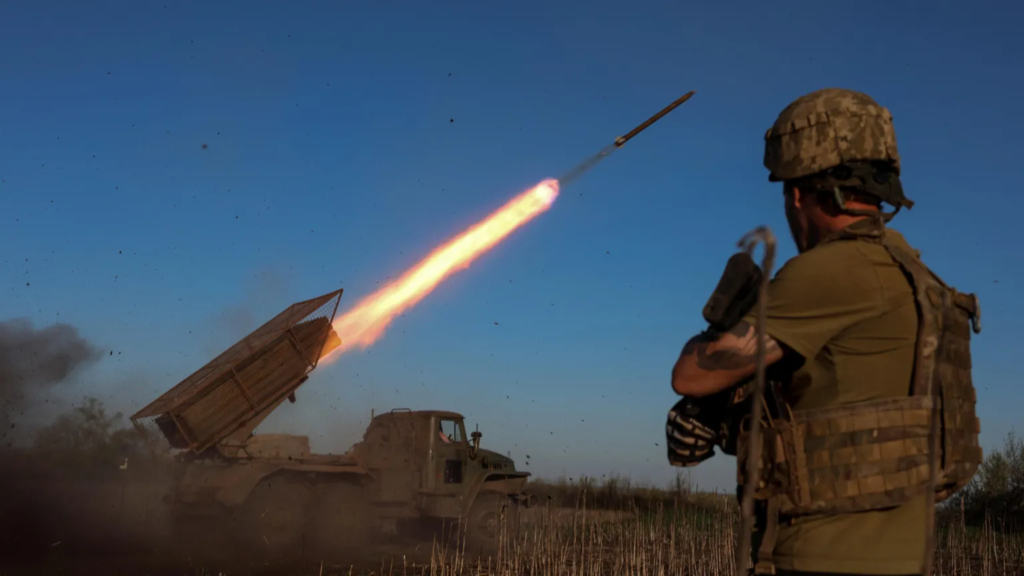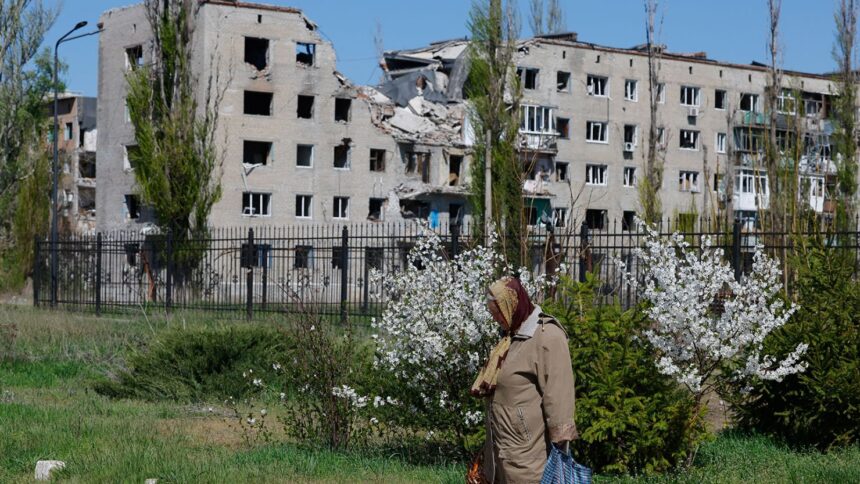US Officials Exit London Ukraine Peace Talks Amid Russia Ceasefire Speculation
Downgraded London Talks
The high-stakes peace talks in London aimed at brokering a ceasefire between Ukraine and Russia have been significantly downgraded after US Secretary of State Marco Rubio and special envoy Steve Witkoff withdrew at the last minute. Their absence has led to speculation about the United States’ evolving diplomatic strategy amid the accelerating pace of negotiations with Russia.
Changes in US Representation
Instead of Rubio and Witkoff, Trump’s envoy General Keith Kellogg represented the US in the meeting with officials from the UK, France, Germany, and Ukraine. The US characterized the London discussions as “technical meetings”, with Secretary Rubio shifting his focus to direct diplomatic efforts in Moscow later this week. Witkoff is also scheduled for his fourth meeting with Russian President Vladimir Putin.
Emerging Ceasefire Speculation
According to reports by the Financial Times, there is speculation that Russia may be willing to halt its invasion along the current front lines in exchange for US recognition of its sovereignty over Crimea and abandonment of claims to unoccupied Ukrainian territories. The Kremlin, however, has dismissed these reports as fabrications, and Ukrainian President Volodymyr Zelensky has categorically rejected any such proposal.

Ukrainian and Western Response
Zelensky reiterated Ukraine’s firm stance: “Ukraine does not legally recognise the occupation of Crimea. There’s nothing to talk about.” Adviser Yuriy Sak emphasized that topics like Crimea are “non-negotiable”, calling it “naïve” to expect any shift in Ukraine’s position. British officials also appeared blindsided by the US withdrawal, describing the move as a sudden and uncoordinated change that left their diplomatic plans in disarray.
Continued Violence on the Ground
Meanwhile, Russia has resumed attacks after a brief Easter pause. A deadly drone strike in the eastern city of Marhanets killed nine civilians and wounded many more. In Kherson, Russian shelling destroyed a vital electricity facility. Despite President Putin’s claims of an Easter truce, British military intelligence has found no indication of any real let-up in the fighting.
Strategic Implications
The shift in US diplomatic engagement, particularly its decision to pursue parallel discussions with Russia, raises concerns among European allies. There are fears this strategy could undermine NATO unity and reduce Ukraine’s leverage in any potential settlement. Some observers believe the US may have anticipated Ukraine’s rejection of the latest peace plan and opted to avoid a potentially tense exchange during the London talks.
Looking Ahead
With diplomatic channels diverging and battlefield conditions remaining volatile, the path to peace remains uncertain. While the US explores Moscow as a possible venue for breakthroughs, Ukrainian officials maintain a strict mandate in all negotiations: a ceasefire that respects Ukraine’s sovereignty and does not compromise on its territorial integrity. The world now watches to see whether a meaningful step toward ending the war can emerge from this complex diplomatic chessboard.
Downgraded London Talks Raise Diplomatic Questions
Efforts to secure a ceasefire between Ukraine and Russia hit a diplomatic snag as top US officials withdrew from a high-level summit in London. Initially expected to feature key US figures including Secretary of State Marco Rubio and special envoy Steve Witkoff, the talks have been downgraded, raising questions about Washington’s current strategy for resolving the two-year-long conflict.
Instead, General Keith Kellogg, a close ally of former President Donald Trump, represented the US in what were later described as “technical meetings.” UK Foreign Secretary David Lammy still hosted a bilateral meeting with his Ukrainian counterpart, but the absence of senior American figures shifted the tone and expectations of the gathering.
Focus Shifts to Moscow Amid Growing Speculation
The US withdrawal is attributed to a strategic pivot toward direct discussions with Moscow. Witkoff is reportedly en route to Moscow for his fourth round of talks with Russian President Vladimir Putin. Secretary Rubio stated he would be focusing on other pressing diplomatic matters, but emphasized that the US remains “deeply engaged” in Ukraine-related discussions.
This realignment comes as reports, particularly from the Financial Times, suggest Russia may be willing to halt its invasion along current front lines if the US agrees to key concessions, including recognition of Crimea as Russian territory and a halt to Ukraine’s NATO membership ambitions. While these claims remain unconfirmed, they have fueled intense debate among Western allies.
Zelensky, Ukraine Firm on Territorial Sovereignty
Ukrainian President Volodymyr Zelensky has been clear in his response: Ukraine will not consider any ceasefire plan that includes the recognition of Crimea as Russian territory. “Ukraine does not legally recognise the occupation of Crimea. There’s nothing to talk about,” Zelensky declared during a recent press conference. His position reflects not only Ukraine’s legal stance but also the broader international consensus that borders must not be changed by force.
Yuriy Sak, an adviser to Ukraine’s Ministry of Strategic Industries, reinforced this sentiment during an interview with the BBC. He stated that Ukraine’s negotiating team would attend the London meeting with a “clear and narrow mandate” focused strictly on achieving an unconditional ceasefire. Sak described suggestions of territorial concessions as “naïve and unproductive.”
Increased Russian Attacks Undermine Peace Efforts
While diplomacy continues, the violence on the ground has escalated. Russian drone strikes targeted the eastern Ukrainian city of Marhanets, killing nine civilians and injuring dozens more. The southern Kherson region also reported destruction of a critical power facility after repeated shelling. These attacks came despite claims from Moscow of an Easter ceasefire.
British Defence Secretary John Healey told Parliament that there is “no evidence” of an actual truce and accused the Kremlin of playing for time while escalating military operations. “While Putin says he wants peace, he has rejected a full ceasefire,” Healey said, citing continued pressure on multiple Ukrainian fronts.
Strategic Implications for NATO and Allies
The sudden withdrawal of senior US officials has prompted concern among NATO members and EU diplomats. Some fear that a bilateral US-Russia deal could undermine collective efforts and fracture transatlantic unity. British diplomats were reportedly caught off guard by the US decision, which was described as last-minute and lacking prior coordination.
Experts suggest that the US may be calculating that direct engagement with Moscow will yield faster results than broader multilateral talks. Others speculate the US sought to avoid immediate diplomatic tension, expecting Ukraine to reject proposed compromises outright.
Path Forward Remains Unclear
As the war drags on past its second anniversary, the path to peace remains elusive. With over seven million Ukrainians displaced and hundreds of thousands dead or wounded, the urgency for a resolution is growing. Whether direct US-Russia talks can deliver results without sacrificing Ukrainian sovereignty is a critical question for the months ahead.
Category: International Relations, Geopolitics, US Foreign Policy, Ukraine Conflict
Tags: US Ukraine talks, London peace talks, Crimea dispute, Zelensky, Putin, Russia ceasefire, NATO Ukraine, Marco Rubio, Steve Witkoff, Ukraine Russia conflict, US diplomacy, Moscow negotiations
Category: International Relations, Geopolitics, US Foreign Policy, Ukraine Conflict
Tags: US Ukraine talks, London peace talks, Crimea dispute, Zelensky, Putin, Russia ceasefire, NATO Ukraine, Marco Rubio, Steve Witkoff, Ukraine Russia conflict, US diplomacy, Moscow negotiations









